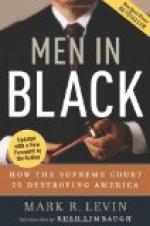The rule of evidence is plain that makes it necessary for the plaintiff to show where he saw the defendant, what was done, and what was said or written by the two parties. If the question is as to the delivery, it is not enough for the plaintiff to say “I delivered the goods.” The court must have proof of the history of the goods. The driver of the wagon must be called who can testify where he drove, what package he carried, and what was done with it when he reached the house.
The whole subject of expert witnesses is not so complicated after all. They are merely persons of exceptional experience who are allowed to testify as to something of which they know nothing. They may have never seen nor heard the facts in dispute but because they have had so much experience on similar facts they are allowed to say what they think of facts produced by eye witnesses before the court. As conclusions and opinions may be various, there is at times a great variety in experts, and because the very name of experts implies technicality, there is a feeling in the minds of the jury and the public, that the testimony of experts will befog by a mass of non-understandable terms.
The doctor who testified in a case in which the plaintiff suffered a sore back and had seventy-five dollars damages from the jury is an example. He said:
“The plaintiff was suffering from traumatic sacro-illiac disease, traumatic sinovitis of the knee and wrist and from traumatic myositis of the muscles of the back.”
In reality the testimony of expert witnesses is very good evidence. If it is given in plain and understandable English and the jury think the expert a clean-cut, sensible man, it is just what the jury want to learn. An expert’s method of reasoning about the facts in evidence is the same as that employed by the jury in the jury-room. It is merely an opinion; for on the opinion of the jury, based on the evidence depends their verdict.
While the witnesses are being examined, called to the stand, sworn, being excused, and being cross-examined, there occur numberless incidents of the trial known as the objections, exceptions, and motions.
XI
THOSE TECHNICAL OBJECTIONS
These are the stage tricks and little incidents that give variety to the performance. No drama would be complete without a few diversions. So far as the drama itself goes, they are of no great importance except to give pungency and interest to the action.
The lawyer asks an apparently good question. “I object,” says the other lawyer, “on the ground that it is incompetent, irrelevant, and immaterial.” The judge has to rule. He may not exactly have heard the question. The stenographer reads it again. The other lawyer leans forward in a frenzy of fear lest the question be ruled out. He begins to argue.




